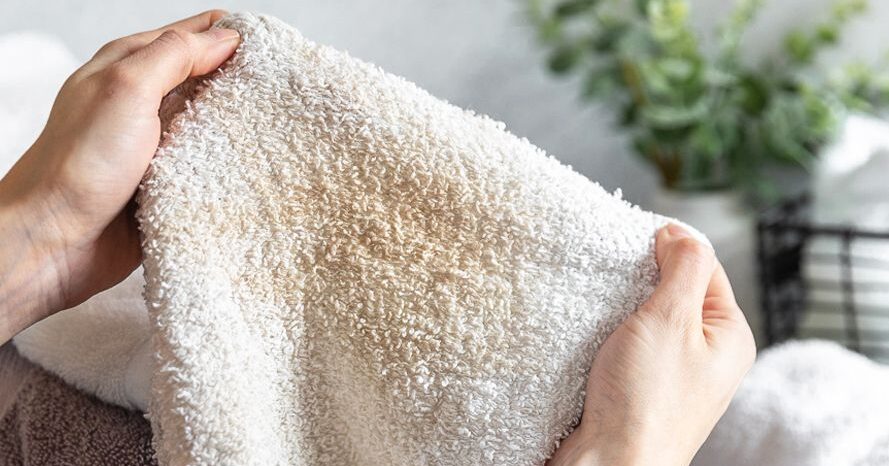
Towels: Real Dirty Business
Be honest, how often do you wash your towels? Once a week? Maybe every four days? It’s okay, you can admit it. You’re in a safe space – no judgment.
Likely, you’re as guilty as the rest of us for not washing them on a daily basis. I mean, what is the need? We’re using them after cleaning ourselves, so how dirty can they get? Plus, let’s be real, who has time to do laundry every day?
The towel you use after a shower or the hand towel you dry your freshly washed hands with aren’t actually clean – even if they are only used once. In fact, they’re microbial love nests just waiting to lure eager bacteria into their procreation dens. Dirty towels can carry such a vast variety of microbes that they’ve been known to spread infectious diseases like pink eye and Candidiasis, which kind of defeats the entire purpose of keeping our bodies clean.
Used towels are bacteria traps because, when you dry yourself, you inadvertently transfer skin cells and bacteria from your body onto your towel. Most of these germs are entirely innocent and won’t sabotage your health because they’re coming from you. Our bodies are designed to handle a lot of bacteria; it’s how we build our immune systems. However, some bacteria aren’t innocuous and love a nice, damp towel to grow on. A moisture-ridden cloth is to bacteria as gold-studded penthouses are to Donald Trump.
Microbes also have a thing for dark, warm rooms, so a towel hung in the bathroom after a long shower is pretty much the sweet spot for these bad boys.
Because you use your hands for everything from cooking to pumping gas, they are land-mines for organisms like Coliform bacteria, Escherichia coli or even Salmonella, according to Charles Gerba, a microbiologist at the University of Arizona. He found that 90% of bathroom towels were contaminated with Coliform bacteria and about 14% carried E. coli. To make matters worse, Gerba found these bacteria were also present on kitchen hand towels.
The problem is that many people don’t wash their hands thoroughly, so when they dry their hands, they’re rubbing bacteria into a place it’s likely to grow. “After about two days, if you dry your face on a hand towel, you’re probably getting more E. coli on your face than if you stuck your head in a toilet and flushed it,” Gerba says.
In 2003, after an outbreak of MRSA occurred among college football players in Los Angeles, a study concluded that sharing towels on the field helped facilitate the transmission of the MRSA infection.
In conclusion, the best way to avoid making your home the backdrop to the Outbreak sequel, wash kitchen and bathroom towels every two days. Remember, not just any rinse will do. Regular detergent doesn’t kill all bacteria, so use hot water and a product with activated oxygen bleach to clean your towels thoroughly.
If there’s any light at the end of this horrifying tunnel, it’s this: you may be able to go slightly longer before washing if you’re careful about keeping towels very dry and not using them until they are entirely free of moisture.
Still, you’ll want to wash them at least once a week.

Recent Comments